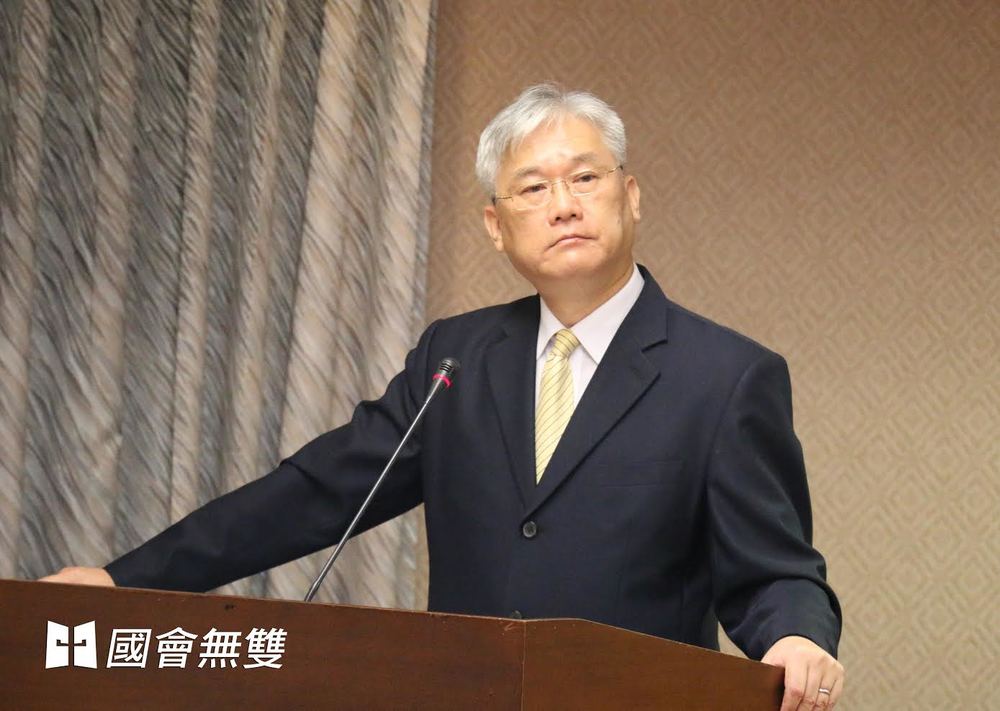by Brian Hioe
語言:
English
Photo Credit: Eric Chu/Facebook
KMT VICE CHAIR Andrew Hsia sparked controversy after it was announced that Hsia would be taking a trip to China, which began yesterday. The issue is particularly sensitive, seeing as this occurs immediately after unprecedented Chinese military live-fire drills surrounding Taiwan.
Indeed, the visit provoked backlash from younger members of the KMT almost immediately. A petition was launched by younger KMT politicians calling on Hsia not to travel to China. The signatories are primarily KMT city councilors or KMT city councilor candidates from Taipei, New Taipei, Pingtung, and Changhua.
The petition brought up that any trip to China by pan-Blue politicians could easily be misunderstood in the period of heightened tensions. Indeed, the optics of the visit are quite poor for the KMT, with some expecting that backlash over the Chinese live-fire drills could in fact hand the next set of elections to the DPP.
 Andrew Hsia. Photo credit: Congress Musou/CC BY-SA 4.0
Andrew Hsia. Photo credit: Congress Musou/CC BY-SA 4.0
Hsia visiting China in this timeframe may strengthen the perception, then, that the KMT is linked with China and acts as its proxy in Taiwan. The KMT did express thanks to the ROC military for defending Taiwan during the drills but was relatively quiet in condemning the drills. This probably reflects a deep split within the party, with chair Eric Chu seeking to rebrand the party as less pro-China and, in fact, pro-American, but coming under fire for this.
Hsia previously spoke at the annual Straits Forum held in Xiamen by video call in the midst of Chu’s pivot, while Chu did not. It is unclear if this is something that he did on his own, reflective of divides within the KMT against Chu’s leadership, or whether Chu was hoping to hedge his bets by trying to reassure China of strong ties at the same time as he tried to strengthen ties with the US.
Either way, the KMT’s messaging continues to be split. For its part, the KMT claims that Hsia’s trip is primarily to meet with Taiwanese in China and is primarily a fact-finding mission, but his visit is likely not to be perceived as such.
Indeed, other recent trips to China by KMT politicians likely did little to help the party’s image, except driving home the point of it being a pro-unification political force in Taiwan. Former party chair Hung Hsiu-chu has traveled to China several times in the past few months, for example, to attend the opening ceremonies of the Beijing Olympics, a youth forum in Hangzhou, and in order to visit Xinjiang, where she denied the atrocities committed there against Uyghurs and praised Chinese “anti-terrorism” efforts.”
Through the trip, it is expected that Hsia may be hoping to engender the perception that the KMT is the only political party in Taiwan able to maintain stable cross-strait relations and so it should hold power. In this way, the trip may be aimed at benefiting the KMT in upcoming elections. This has long been a traditional claim by the KMT leveraged in Taiwanese politics, so as to justify its holding power. Consequently, it is possible that Hsia may refer to the 1992 Consensus in his comments, or otherwise try to reaffirm it, as even if the 1992 Consensus is increasingly lacking salience among the public, it remains popular within the KMT. Chu recently provoked backlash within the KMT trying to distance himself from it as part of his efforts to rebrand the KMT, by claiming that the 1992 Consensus was a “non-consensus consensus.”
That is the very reason we send a fact-finding delegation on Aug. 10 to visit Taiwanese communities that study and live in Southern Mainland China. This apolitical trip aims at learning their views and providing assistance.
— 中國國民黨 KMT (@kuomintang) August 9, 2022
Tweet by the KMT about the trip
Nevertheless, any incriminating statements by Hsia during the trip that are seen as compromising on Taiwanese sovereignty are likely to be used as fodder by the DPP during election season. In this sense, the trip is indeed a poorly thought-out idea.
In the past years, the KMT has stoked fears that it would try to trade away Taiwan’s sovereignty by conducting meetings with the CCP on a party-to-party basis, such as by signing a peace treaty with China that might compromise on Taiwan’s sovereignty. This possibility came up during the November 2015 Ma-Xi meeting as well as in the lead-up to 2020 elections.
That Hsia’s current trip has not stoked such fears–particularly since it takes place at a sensitive juncture–actually reflects how much weaker the KMT’s position is since then.
Apart from that other blunders by Hsia will be used as political ammo, it is also possible that China will inadvertently act to hurt the KMT’s electoral chances. For example, the KMT actually pulled out of the 2020 Straits Forum after reports in Chinese state-run media that the KMT would be suing for peace at it. This was due to backlash against the KMT when there were already accusations ahead of 2020 elections that the KMT would try to circumvent the ROC government to sign a peace treaty with China. The Hsia visit, then, probably will not go well for the KMT.

